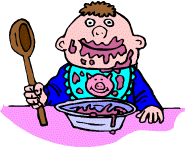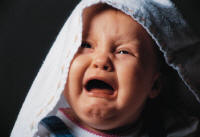The most obvious
question to start with (and most often asked) seems to be
"How do I become
an extra?" Along with that, one may ask "What does an extra DO??"
I can't
believe I'm about to do this, but I'm actually going to send you ELSEWHERE
for the answers! A website called "Soyouwanna.com" has one of the most
thorough and helpful explanations of extra work that I've seen on the web.
But be sure and come on back here when you're done.. I have some things to
add and a lot more to talk about.
CLICK
HERE--->>

NOTE- CENTRAL CASTING is the biggest game in town
(Los Angeles, anyway..) and "soyouwanna.com" provides a link to their
website. Unfortunately, their website no longer exists.
Fortunately, if you'd like to register, all you need to do is call them.
You'll get a very descriptive voice mail telling you where to go, when to
go and what to do. CALL THEM at (818) 562-2755. GOOD
LUCK!

And
now, various questions that I've been asked via email or in person about
working on a film or television shoot. In no particular order..
How many years have you been doing this?
I've been doing live theatre in one form or another since about 1981,
but I didn't book a film or TV job until November of 2000.
You've mentioned 'craft services' a couple of times.
Is this provided on all shoots for the extras? Do they ever provide you
with a full lunch or do you always have to go to the commissary for that
and pay from your own pocket. And what about the 'stars', do they have a
separate 'craft service' table, or what?
Craft services and catering are two different things. Craft services are
generally provided by the production company throughout the shoot, from
the call time up until the wrap time. It's usually a table or two set up
with all kinds of goodies like bagels, doughnuts, fruit, bread, snacks and
whatever else the craft service person can dig up. The person in charge of
it is there solely to keep it stocked, and is usually well liked by cast
and crew as a result. Most of the time the cast, crew and extras
share the same craft services but there are exceptions. It's often joked
that one can get pretty fat just by hanging out on film and television
shoots everyday.
Craft services are
generally provided by the production company throughout the shoot, from
the call time up until the wrap time. It's usually a table or two set up
with all kinds of goodies like bagels, doughnuts, fruit, bread, snacks and
whatever else the craft service person can dig up. The person in charge of
it is there solely to keep it stocked, and is usually well liked by cast
and crew as a result. Most of the time the cast, crew and extras
share the same craft services but there are exceptions. It's often joked
that one can get pretty fat just by hanging out on film and television
shoots everyday.
Catering is when breakfast, lunch or dinner is brought in. Generally if
the shoot is on a studio lot and they have a commissary they don't provide
a caterer. You just have to go to the commissary and get something to eat
during your meal time, or subsist on the craft service goods which usually
isn't a bad deal considering what some of the commissaries charge. I
worked on the Sony Studios lot in Culver City on "King of Queens"
once, and
they sent us to the commissary for lunch, but it was free! That's unusual.
When a shoot is on location they MUST provide catering, and it's always
free to cast, crew and extras. Cast and crew are always first in line at
the catering truck when lunch is called and extras
 have
to wait until they are served first. This isn't due to rank or anything,
it's just a matter of cast and crew working harder on shoots and having
less time for lunch than extras. Extras get to sit around more than
anybody and don't have lines to practice or equipment to set up. The
caterers on these shoots provide hot meals that are made to order, and
there are usually three or four entrees to choose from. The quality is
usually excellent because the caterers have a lot of competition and want
to get the job next time too.
have
to wait until they are served first. This isn't due to rank or anything,
it's just a matter of cast and crew working harder on shoots and having
less time for lunch than extras. Extras get to sit around more than
anybody and don't have lines to practice or equipment to set up. The
caterers on these shoots provide hot meals that are made to order, and
there are usually three or four entrees to choose from. The quality is
usually excellent because the caterers have a lot of competition and want
to get the job next time too.
Often, shooting can run for twelve or more hours and if you're still there
a certain number of hours after lunch (or your last meal period) they MUST
provide you with another hot meal. Usually this isn't a catered affair
because it's late at night now, so they often have a hundred pizzas
brought in or a ton of hamburgers and cheeseburgers. One night when I was
on "The West Wing" set late they brought in huge bins full of roasted
chicken from El Pollo Loco, a local chicken fast food outlet.
I'm fascinated by all the different angle shots they
take. What's the deal with that? Isn't the director looking at a monitor
and getting a feel for which angle he wants without having to shoot from
'both' sides 10 or 12 times? That sounds like a lot of time and money.
Shooting from both sides is typical and must be done to get facial shots
on both characters when they are standing and talking to each other. They
usually shoot a scene from one angle about 3-10 times (until the Director
likes it) and then "turn it around" and shoot the same exact scene from an
opposite angle to get the OTHER actor's face, taking another 3-10 times
until the Director gets what he/she wants. The actors must match what they
did each time, and sometimes the period between the first angle and second
angle can be hours if they break for lunch or something happens to hold up
the turn around, so it's really a challenge for the actors in those cases.
 Also,
if a show is a huge success and has a big budget to spend on film, the
Director may just shoot a zillion camera angles and then decide later in
the editing bay what he/she wants to use in the final cut. It's expensive
to do this not only because the film is costly, but it takes so long that
crew and extras end up going on overtime. Shooting more than they
need and then cutting the heck out of it is common practice on shows like
ER, The West Wing and Law and Order. I was on a budgeted film shoot (A
film starring the voluptuous Krista Allen, called "Totally Blonde") where
the Director didn't have much money to work with.. and so he never went
over three takes to get anything and he used as few different camera
angles as possible. I've never seen a shoot go so fast! Time is money.
Also,
if a show is a huge success and has a big budget to spend on film, the
Director may just shoot a zillion camera angles and then decide later in
the editing bay what he/she wants to use in the final cut. It's expensive
to do this not only because the film is costly, but it takes so long that
crew and extras end up going on overtime. Shooting more than they
need and then cutting the heck out of it is common practice on shows like
ER, The West Wing and Law and Order. I was on a budgeted film shoot (A
film starring the voluptuous Krista Allen, called "Totally Blonde") where
the Director didn't have much money to work with.. and so he never went
over three takes to get anything and he used as few different camera
angles as possible. I've never seen a shoot go so fast! Time is money.
How many extra takes are needed because an actor
messes up his/her lines? For example, I've read that on Law and Order if
Sam (Jack McCoy) messes up a courtroom scene he simply takes a step
backward, gathers himself and picks up where he screwed up. On the other
hand, we've learned that when Harmon screws up she starts yelling for her
lines and the whole scene has to start over again. I know this is kind of
a fuzzy question but what have you observed?
Although most of them won't admit to this, actors are mere mortals just
like you and as such they are all different. Some posses the ability to
just back up a few steps and go from there like Sam (Waterston), and some
have to do their scene all over again for the context like Angie (Harmon).
Directors and more importantly, Producers love it when an actor can just
back up a few steps, because it saves them time (MONEY!!) but if someone
needs to go to the start of the scene the Director will oblige them.
Acting can be tough and a lot of pressure comes with the gig, so most
Directors are willing to let the actor do what it takes to get what they
are trying to accomplish.
One time I was on the set of The West Wing and we were all waiting for Rob
Lowe, who plays SAM on that show. (Lotta Sams!) When he
arrived on set to shoot the scene, the makeup people hadn't arrived yet to
do their final touches on the actors before the camera rolled, and Rob
didn't care for that at all. "Where in the HELL are they?" he
yelled. "On their way" the Director assured him.. "They'll be
here any minute". Rob cussed out the Director, then stormed off the
set, yelling "Screw them, I'll be in my trailer." Of course , the
very MOMENT the door closed behind him as he exited the sound stage, the
makeup lady and her assistant came in the opposite door, out of breath
from running so hard. "Where's Mister Lowe?" she asked the director.
He replied that "Mister Lowe was running a little behind schedule."
The Assistant Director asked the Director if he wanted him to go fetch
him, to which the Director replied "No, he'll return when he's ready."
SO, an entire crew sat around for about fifteen or twenty minutes until
Rob finally came through the door, happy as could be and acting like
nothing had happened. A Director WILL go through hell and put up
with all kinds of crap to make his/her principle actors content.
|

Actor ROB LOWE of THE WEST WING voices his frustration with those
bad, bad makeup people |
How many takes you ask? It varies from actor to actor. RICHARD SCHIFF
(Toby on The West Wing) is known for having the hardest time getting his
lines out all in one piece. They use more film on that guy than anyone.
(My first time on The West Wing involved a scene that revolved around
Schiff, and when one of the extras who had worked the show before saw him
walk on to the set, he quipped "Oh good, Lotsa overtime today!) But in fairness to him, he has the hardest lines at times.. his character
tends to have page long monologues to deliver that are full of obscure
political references and historical facts. It's really got to be tough for
him to remember a lot of the material he's given in the short time he has
to memorize it.
You mentioned that you got a 'rain bump' because
you had to stand outside in bad weather. We've been told that extras on
Law and Order get paid every time they have a change of clothes. Are there
other things along those lines that help you earn a bigger payday from a
show? I'm guessing that there are very strict union guidelines for extras
and how they are to be fairly compensated.
 These
are called bumps, and one doesn't have to be a union member to be entitled
to them. The union is just there to enforce labor code, but most extras on
a set are non-union and the production companies tend to be fair and do
what's by the code for everyone. After all, if a company isn't fair word
gets around quickly and most of the extras who do this work full time
won't work that show. Believe me, word gets around about everything
because extras mostly sit around in the holding area talking to each other
for the majority of time they are on a shoot.
These
are called bumps, and one doesn't have to be a union member to be entitled
to them. The union is just there to enforce labor code, but most extras on
a set are non-union and the production companies tend to be fair and do
what's by the code for everyone. After all, if a company isn't fair word
gets around quickly and most of the extras who do this work full time
won't work that show. Believe me, word gets around about everything
because extras mostly sit around in the holding area talking to each other
for the majority of time they are on a shoot.
Bumps vary from about four dollars extra to twenty five. I think a rain
bump is seven, smoke is the same and if you're asked to bring your car to
a shoot they pay you a fifteen dollar bump for it. If you have a pet you
may be asked to bring it and that's good for seven, a wardrobe change is
four but that's only the second change, not the first. Sometimes they pay
a mileage bump if the shoot is a far location from where you live.
Sometimes bumps aren't paid when you deserve them, and so union people
complain to SAG and get it taken care of, whereas non-union people can
complain to their casting agency who will then take issue with the
production company and often get it resolved. But not always :-(
AD is assistant director ? PA is producer's
assistant?
 Everybody
has a rank, and everybody has a boss. The Director DOES have an assistant
working for him/her who is known as the "FIRST AD" (yes, Assistant
Director) but there are also ADs below the FIRST and THEN the PAs. The
FIRST AD is a supervisor too, and calls a lot of the shots and makes a lot
of decisions. The Director will delegate a lot of authority to the FIRST
AD and the FIRST basically tells everybody what to do except the Director.
Often the FIRST is the ringmaster who runs the show, and on a lot of
television programs the Director is different from one episode to another,
so the FIRST is the person who knows the cast and crew inside out and can
thus advise the Director on the best course of action.
Everybody
has a rank, and everybody has a boss. The Director DOES have an assistant
working for him/her who is known as the "FIRST AD" (yes, Assistant
Director) but there are also ADs below the FIRST and THEN the PAs. The
FIRST AD is a supervisor too, and calls a lot of the shots and makes a lot
of decisions. The Director will delegate a lot of authority to the FIRST
AD and the FIRST basically tells everybody what to do except the Director.
Often the FIRST is the ringmaster who runs the show, and on a lot of
television programs the Director is different from one episode to another,
so the FIRST is the person who knows the cast and crew inside out and can
thus advise the Director on the best course of action.
Next is the SECOND AD who is primarily responsible for cast, crew and set
problems and then there's the SECOND SECOND AD (yes, that's actually the
title! (There is no "THIRD AD" but that's essentially what it is). Among
other duties, the SECOND SECOND is in charge of extras so that's always
the person I ask for when arriving on set, and I sign in with and out with
at the end of the day.
This can vary from one production to another.. on "Gilmore Girls" there is
a SECOND AD in charge of background people and he has a PA to help him. On
"The West Wing" the SECOND AD doesn't concern herself with background
because they have a SECOND SECOND AD to handle them and HE has a "trainee"
to help him, who is really a PA but called a trainee. Same thing.
PA is Production Assistant, and it's an entry level position. If you were
interested in working on film and TV shoots and wanted to aspire to direct
someday, they'd most likely hire you as a Production Assistant to start
you off. It's a somewhat generic position that doesn't really specialize
in anything.. they're present to learn the business and help out anyway
they can. Sometimes when there are a lot of extras on a set for the day,
the second second will be given a PA to help handle them all. Other times
PAs have nothing to do with extras. On a recent West Wing shoot we were at
a bar in Burbank which the company had rented out for the day to film
inside. It was right on the street and anybody could just wander up, so
they had a PA stationed at the front door of the bar for the entire shoot
just to make sure only cast, crew or extras went in, and that NO ONE went
in while they were rolling cameras. So basically she was just a security
guard for the day.
|

The film's Second Second Assistant Director
goes over a few script notes with the newly arrived P.A. |
What got you interested in wanting to
pursue the art/entertainment avenue?
Geez, I don't know.. I've always been a performer, be it doing little
shows for my relatives when I was a kid to being the class clown or life
of the party many years later. I've held many jobs but only seem to be
content when I'm working in some performance venue. I've worked
professionally as an actor, a mime (at Seaworld of San Diego), a Disc
Jockey and a Theatrical Sound Designer. I've loved doing any of those and
I don't know why.. I guess it's something you're born with. So I'm sorry
that I can't really attribute one particular thing or person for sparking
my interest. It's just always been there!
How do Hollywood Film Studios change leadership?

anymore questions? EMAIL ME and I'll post them here with your answers
